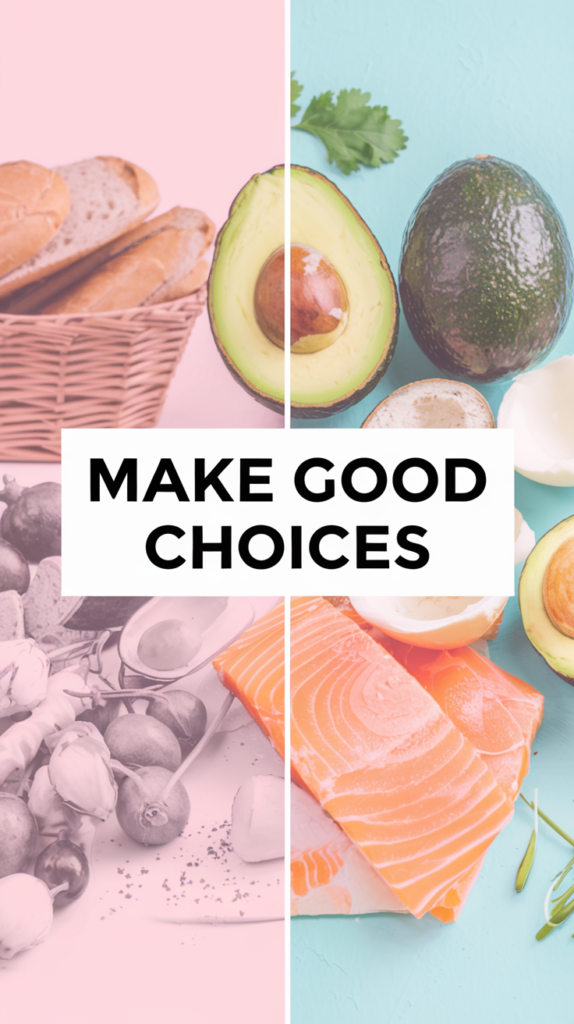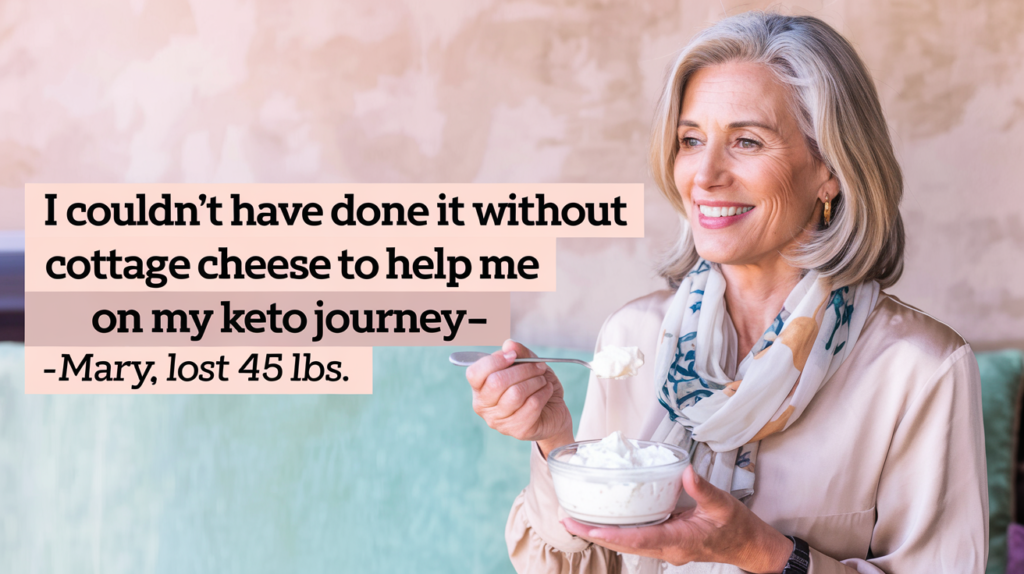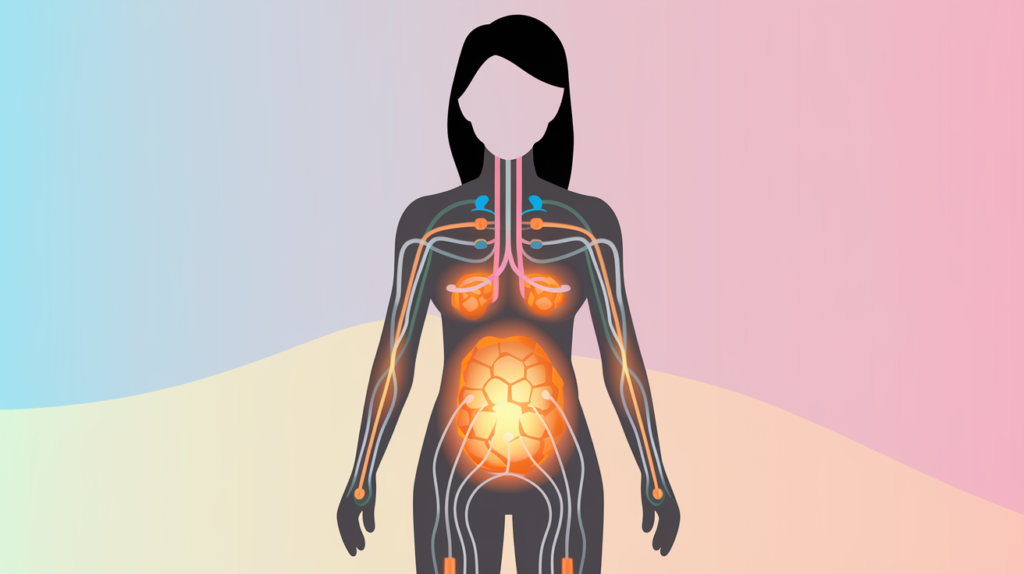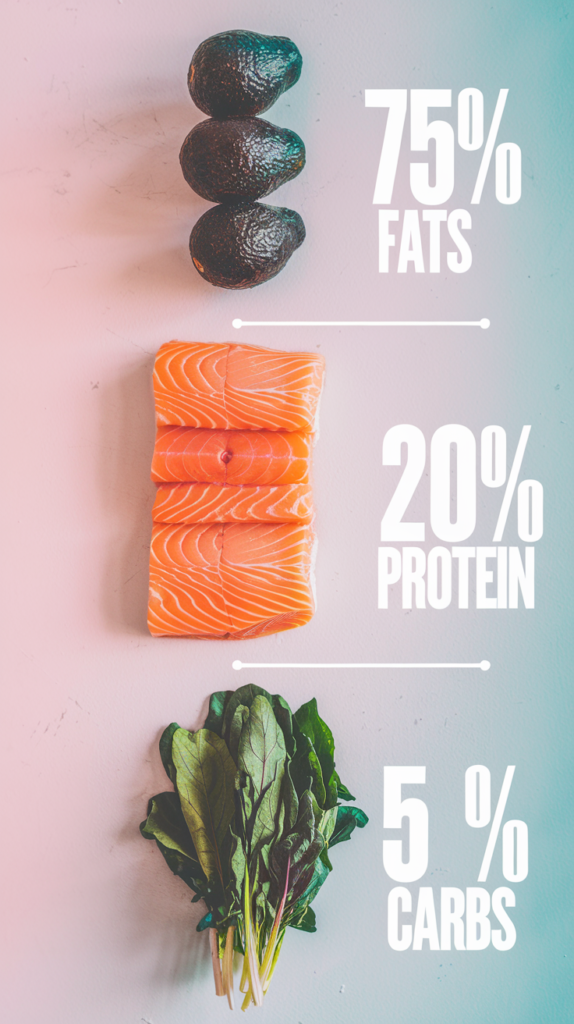Your Ultimate Guide to Weight Loss, Energy, and Health

Introduction
The ketogenic diet, or keto for short, has taken the health and wellness world by storm. With its potential for weight loss, increased energy, and mental clarity, it’s no wonder so many are interested in how it works. If you’re curious about this low-carb, high-fat lifestyle and want to know if it’s the right fit for you, you’ve come to the right place. In this guide, we will answer the top 10 questions about the keto diet, covering everything from the basics to the benefits, side effects, and practical tips for success. By the end, you’ll be ready to take your first step towards a healthier, more mindful lifestyle.

Key Takeaways
- The keto diet is a low-carb, high-fat plan designed to promote fat burning and weight loss by inducing ketosis.
- Keto can help with weight loss, improve mental clarity, and reduce hunger when followed correctly.
- Be mindful of potential side effects like the “keto flu,” which can be managed with proper hydration and electrolytes.
- Calculating your macros is crucial for success—typically 70-75% fats, 20-25% protein, and 5-10% carbs.
- Consistency and proper planning are essential for an effective keto journey. Consider using our free keto meal planner to keep yourself on track and achieve your health goals..
- Keto can help with weight loss, improve mental clarity, and reduce hunger when followed correctly.
- Be mindful of potential side effects like the “keto flu,” which can be managed with proper hydration and electrolytes.
- Calculating your macros is crucial for success—typically 70-75% fats, 20-25% protein, and 5-10% carbs.
- Consistency and proper planning can make your keto journey more effective and enjoyable.

Some blog articles may contain affiliate links to products or services for which we may receive a commission on transactions. Some of the content on this blog site may be assisted by A.I. generators.
Thank you for visiting our blog!

1. What is the keto diet?
The keto diet is a low-carb, high-fat eating plan designed to put your body into a state of ketosis, where it burns fat for fuel instead of carbohydrates. This shift encourages your body to become more efficient at utilizing fat as energy, which can be beneficial for weight loss and overall health. If you’re just starting, think of keto as a way to retrain your metabolism and boost your energy levels.

2. Is a ketogenic diet good for weight loss?
Yes, many people find keto effective for weight loss because reducing carbs helps control hunger and cravings while promoting fat burning. Studies have shown that individuals following a keto diet can lose significantly more weight compared to those on low-fat diets, especially in the short term. By staying in ketosis, your body taps into stored fat for energy, leading to consistent weight loss results. That said, individual experiences can vary, and sticking to the right food plan is crucial for success.. By staying in ketosis, your body taps into stored fat for energy, leading to consistent weight loss results. That said, individual experiences can vary, and sticking to the right food plan is crucial for success.

3. What can I eat on a keto diet?
On a keto diet, focus on foods that are high in healthy fats and moderate in protein. Here are some keto-friendly options:
- Healthy Fats: Avocados, olive oil, coconut oil, butter, ghee, nuts, and seeds.
- Protein Sources: Eggs, fatty fish like salmon, chicken thighs, beef, and pork.
- Vegetables: Leafy greens (spinach, kale), broccoli, cauliflower, zucchini, and bell peppers.
- Dairy: Cheese, heavy cream, and Greek yogurt (in moderation). Avoid sugar, grains, and starchy vegetables to maintain low carbohydrate levels.. Think avocados, nuts, seeds, cheese, eggs, and fatty fish like salmon. You should also include leafy greens and non-starchy vegetables. Avoid sugar, grains, and starchy vegetables to maintain low carbohydrate levels.

4. What are the benefits of a keto diet?
Aside from weight loss, the keto diet offers several other benefits, including improved mental clarity, better energy levels, reduced inflammation, and even potential improvements in blood sugar levels. Many also report reduced hunger and increased satiety, making it easier to maintain healthy eating habits.

5. Is the keto diet safe?
For most people, the keto diet is safe when followed correctly, but it’s important to pay attention to your body. Potential deficiencies in vitamins like magnesium, potassium, and vitamin D can occur if you don’t eat a well-rounded keto diet. Supplements may be necessary to maintain nutrient levels. There are some health conditions that may require extra consideration, like diabetes or kidney issues. If you’re unsure, it’s best to consult a healthcare professional before making significant dietary changes., but it’s important to pay attention to your body. There are some health conditions that may require extra consideration, like diabetes or kidney issues. If you’re unsure, it’s best to consult a healthcare professional before making significant dietary changes.

6. What are the disadvantages or side effects of a keto diet?
Some people experience “keto flu” in the first week, with symptoms like fatigue, headaches, or irritability. These symptoms are usually temporary and can be managed by staying hydrated and ensuring you’re getting enough electrolytes. Here are some potential side effects:
- Keto Flu: Symptoms include fatigue, headaches, nausea.
- Nutrient Deficiencies: Possible deficiency in magnesium, potassium, or other nutrients.
- Digestive Issues: Constipation may occur due to a lack of fiber from starchy vegetables. Also, restrictive eating might not be for everyone long-term. Proper planning and attention to nutrient intake can help mitigate these side effects., with symptoms like fatigue, headaches, or irritability. These symptoms are usually temporary and can be managed by staying hydrated and ensuring you’re getting enough electrolytes. Also, restrictive eating might not be for everyone long-term.

7. How do I calculate my keto macros correctly?
Calculating your macros involves determining the right ratio of fats, proteins, and carbs for your body. Typically, the keto ratio is around 70-75% fats, 20-25% protein, and 5-10% carbs. To get precise, you need to factor in your goals, body weight, and activity level.

8. What is the difference between low-carb and keto diets?
Both low-carb and keto diets limit carbohydrates, but the keto diet is stricter in carb limitation to induce ketosis. A low-carb diet allows for a wider range of carbs, whereas keto specifically aims to keep carbs low enough (usually under 20-50 grams per day) to switch your body into fat-burning mode.

9. Can I gain muscle on a ketogenic diet?
Yes, you can gain muscle while on keto, but it requires careful attention to protein intake. You’ll want to eat enough protein to support muscle growth while maintaining ketosis. Incorporating resistance training and ensuring adequate calories are key components.
Looking for More Delicious Keto Ideas?
If you’re curious about incorporating more high-protein, keto-friendly snacks into your diet, check out our guide on keto cottage cheese. This versatile, low-carb food is a perfect addition to your keto lifestyle, helping you stay full and meet your nutrition goals.

10. How much weight can I expect to lose on keto?
Weight loss on keto varies from person to person. In the first week, many experience a quick drop due to water weight. After that, typical weight loss averages 1-2 pounds per week. For example, many people report losing up to 10 pounds in the first month, depending on factors like adherence, activity level, and metabolism. Remember, long-term success on keto requires consistency and mindful eating habits.. In the first week, many experience a quick drop due to water weight. After that, typical weight loss averages 1-2 pounds per week. Long-term results depend on factors like adherence, activity level, and metabolism.
Conclusion
Embarking on a ketogenic diet can be a powerful way to take charge of your health, promote weight loss, and boost your energy levels. While keto may have some initial challenges, such as adjusting to carb restriction and experiencing temporary side effects, the benefits of improved mental clarity, reduced inflammation, and consistent fat loss are well worth it. Remember, preparation is key.
Whether you’re looking to lose weight, gain muscle, or simply live a more mindful and healthy lifestyle, keto can be a great choice. Start today with our free keto meal planner to simplify your journey, stay motivated, and make mindful living effortless., promote weight loss, and boost your energy levels.
While keto may have some initial challenges, such as adjusting to carb restriction and experiencing temporary side effects, the benefits of improved mental clarity, reduced inflammation, and consistent fat loss are well worth it.
Remember, preparation is key, and having a supportive tool like our free keto meal planner can make all the difference. Whether you’re looking to lose weight, gain muscle, or simply live a more mindful and healthy lifestyle, keto can be a great choice.


Some blog articles may contain affiliate links to products or services for which we may receive a commission on transactions. Some of the content on this blog site may be assisted by A.I. generators.
Thank you for visiting our blog!





